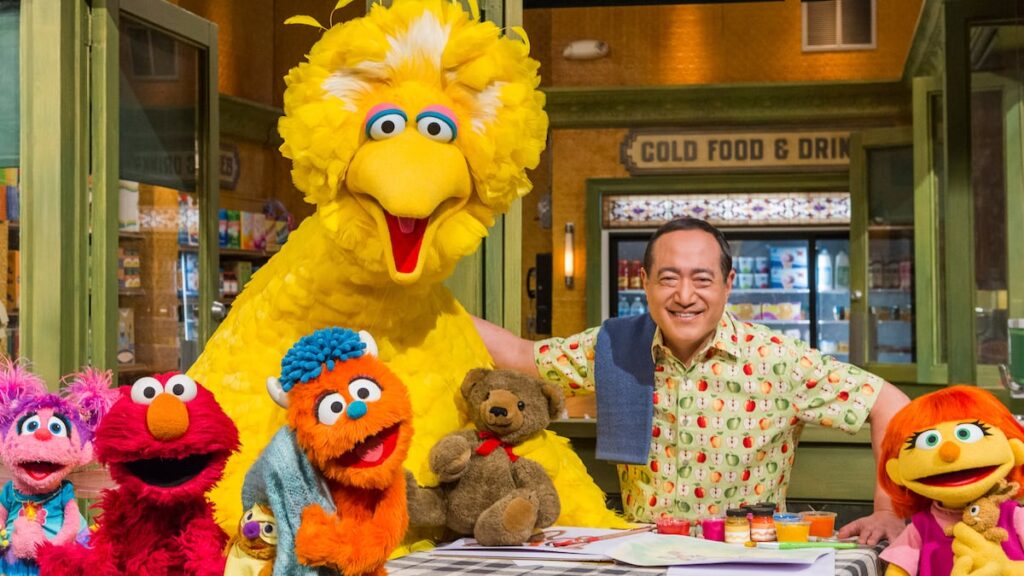Americans are facing reasonable questions in the wake of last week’s executive order to eliminate all federal funds in public media, including last week’s Wedu PBS.
The math is simple, but incredible. Federal funding for public broadcasting costs just $1.60 (less than a cup of coffee) per American each year, but it offers immeasurable value to our country and our community.
In return for that $1.60, WEDU will provide six different broadcast channels, critical emergency broadcast infrastructure and first responders monitoring tools, with nearly one million children, parents and teachers receiving free educational materials, in-person workshops and digital learning resources this year.
When Hurricane Helen got bored in Tampa Bay last fall, Wed became a lifeline for our community. As the mobile tower failed and the power lines dropped, Wedu’s broadcast tower stood firm, providing uninterrupted life-saving information to both Hurricanes Helen and Milton. When modern communication systems stepped in, this reliable public service remained immovable. Before hurricane season, WEDU produced emergency preparation specials and digital videos, all operating on six free channels reaching nearly 7 million residents.
Wedu forms the backbone of educational opportunities for countless parents, teachers, homeschoolers and children throughout our region. This is especially important given that half of American children do not attend kindergarten. For many families, Wedu’s educational programming is the first classroom for children.
The impact cannot be denied. Research consistently shows that children who regularly watch PBS programs like Sesame Street show improved school preparation, stronger vocabulary, improved mathematics skills, and overall academic achievement compared to those who do not. These are not just temporary benefits. Research shows that these educational benefits continue early in the school year.
As the executive order suggests, public media is not just 24-hour news channels. Of Wedu’s 168 airing times each week, fewer than 10 are dedicated to news programming. The remaining 158 hours are filled with content that prepares, inspires, and unites young learners for school. From preparing young learners for schools, historical documentaries telling the story of our nation, to science programs that inspire curiosity and wonder. This is what the documentarian calls Ken Burns “puts “us” on “us.”
The late conservative icon William F. Buckley recognized this value and spent 33 years on PBS showing how education and exchange of ideas can strengthen our democracy. Public media was not about partisan politics. It is about creating informed citizens that can be self-governed. Today, the firing line with Margaret Hoover continues the legacy of Buckley’s conservative programming.
Spend your days with Hayes
Subscribe to our free Stephenly newsletter
Columnist Stephanie Hayes shares thoughts, feelings and interesting business with you every Monday.
You’re all signed up!
Want more free weekly newsletters in your inbox? Let’s get started.
Check out all options
Perhaps no one has made the strategic importance of public media clearer than the retired General Stanley McCrystal, former commander of the US military in Afghanistan. McChrystal said in the New York Times Op-Ed: “Public broadcasting makes our country smarter, stronger, and yes, safer. It’s a small public investment that pays Americans a large dividend. And we shouldn’t make a hole in spending more on improving our military. That’s a false choice.” He said, “My experience has taught me that education, reliable institutions, and civic discourse are the lifelines of a great nation.”
General Mac Crystal’s rating will be reduced to the heart of what is at stake. This isn’t just about preserving unique programs like Sesame Street, Daniel Tiger’s Neighborhood, Kenburns documentaries, and Antique Roadshow. This week we’ll save Florida, Nova, Nature, Masters, PBS Newsur, Amazing Performances, and Masters in America. It is to maintain a shared cultural space where education and civic engagement flourishes. This is what Burns calls “the pursuit of happiness.”
The executive order to eliminate funding for public media represents a deliberate misconception of Wedu’s role in our community and the role of public broadcasting in our country. Wedu’s job is to treat you as a citizen rather than a consumer, serving us all, regardless of wealth, location or background.
And your $1.60? It does a lot of work! Federal government support for public media is the “first dollar” essential to creating value in content. For each federal dollar invested, public media organizations attract more than $7 in support from viewers, donors and community partners. Without these important federal dollars in the foundation, the entire service would collapse and all value would be lost.
Don’t make any mistakes. Conservative federal investment in public media, along with many other investments in public health, safety, civil rights and education, is at serious risk. If public media values what it brings to your life and our community, now is the time to speak up. Your voice is important and you need to hear it.
Visit wedu.org/protect to send an email or call a council representative. Tell us that Wedu and PBS offer exceptional value of $1.60 per citizen per year. Tell us that in an age of increasing polarization, we don’t need more shared spaces that are specialized for knowledge, understanding and community connections, and we need more.
The clock is ticking. Public media is worth supporting a prosperous democracy. And we all need it to protect it.
Paul Glove is the president and CEO of Wedu PBS.

